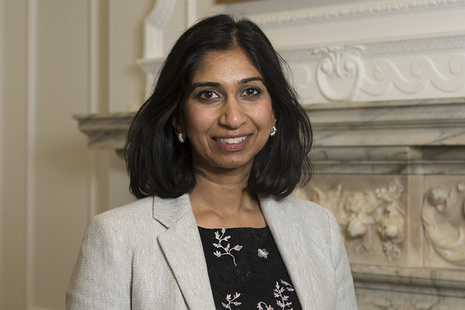
In a prominent address delivered in Washington, D.C., Suella Braverman, the Home Secretary, has voiced her concerns over the current state of international refugee
regulations. During her speech, she expressed the need for an overhaul of the UN Refugee Convention, citing its role in the ongoing Channel migration crisis and its perceived unsustainability.
Braverman contends that the existing system creates substantial incentives for illegal migration and lacks clarity in its definitions of asylum-worthy cases. She distinguishes between individuals trafficked as sex slaves and those who pay criminal gangs to facilitate their journey across the Channel, arguing that their situations should be assessed differently.
The Home Secretary suggests that the UN's 1951 treaty, originally focused on protecting those facing "persecution," should undergo revisions to raise the threshold for asylum claims. She emphasizes that merely being gay or female and fearing discrimination should no longer serve as sufficient grounds for seeking asylum.
Braverman calls for a critical examination of the 70-year-old UN treaty's suitability in the contemporary era, urging political leaders and thought leaders to assess whether it requires reform.
She argues that the current system allows people to traverse multiple safe countries and reside there for extended periods before choosing their preferred destination to claim asylum. Braverman deems this practice absurd and unsustainable.
The Home Secretary also criticizes the interpretation of the convention through courts, suggesting that it may be in need of reform. She mentions the UK government's Illegal Migration Act, which restricts "irregular" migrants from claiming asylum but has not yet been enforced, leaving the possibility of easier deportations for rejected asylum seekers uncertain.
While Braverman's criticisms are contested by immigration lawyers and campaigners, who point to the UK's historical role in drafting the convention, she stresses that the convention should be reevaluated on an international level.
Ultimately, any reform of the convention would necessitate widespread international support and would be a protracted process. Nonetheless, Braverman's speech signals a call for a reassessment of the current asylum system and its compatibility with contemporary global challenges. Photo by UK Government, Wikimedia commons.




































